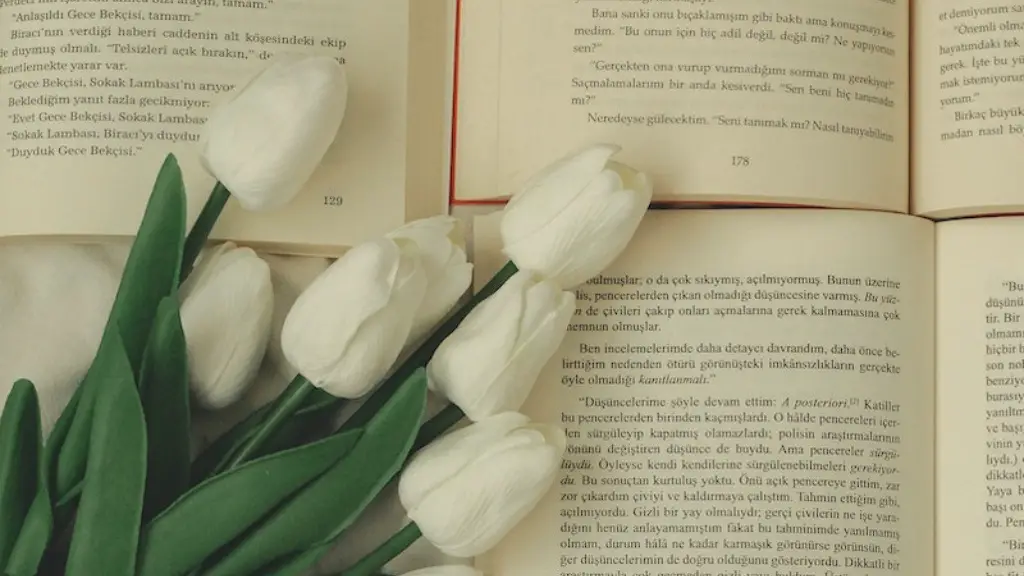How to Submit Poetry: An Overview
Writing poetry is a great form of art and sharing it can be a powerful act. Submitting poetry for publication is a great way for burgeoning poets and established writers alike to share their verse with millions of readers. While this process can be intimidating and overwhelming, understanding the basics of submitting poetry can help authors craft successful submissions and get their work published.
To begin, aspiring poets should compile a list of publishers that accept their type of poetry and the submission guidelines they must adhere to in order to apply. Many publishers specialize in specific types of poetry and have different requirements for potential authors. Additionally, it is important to note the type of submission format each publisher prefers, whether they require hard copies or accept digital submissions, as well. Establishing these basic parameters at the start of the submission process will ensure authors stay on track as they work to submit their poetry.
Next, poets should focus on formatting their work according to a publisher’s guidelines. Most publishers have their own preferences for the layout and presentation of their submissions, so poets should double check to make sure their work adheres. Furthermore, poets should craft a cover letter to accompany their poems. This should include a brief introduction of the poet, a summary of the submission, and often a request for feedback or a response from the publisher. Professionalism is key when submitting poetry, so authors should take time to write thoughtful and articulate cover letters that portray their respect for the publisher.
Before sending a submission, poets should research the publication’s guidelines for simultaneous submission policies. Before submitting to multiple outlets, make sure to double check with each one to make sure that this action is allowed. Many publications accept simultaneous submissions, while other publications prefer to receive original pieces.
Finally, authors should take the time to proofread their submissions. While small mistakes in punctuation and spelling may be acceptable, more serious errors will be viewed as sloppy. To ensure each submission is optimized for the publisher, authors should read over it one last time before submitting.
Copyright
After the submission process is complete, poets will need to consider whether to copyright their work. While copyrighted work is generally seen in a higher light by publishers, copyrighting is not necessary to secure one’s rights over their work. All authored work is considered copyrighted upon completion, but authors may wish to take an extra step to protect their work by filing with the U.S. Copyright Office in order to receive statutory damages in case of infringement. With the freedom of copyrighting at the author’s discretion, this process is up to the poet’s discretion.
Rejection and Rights
With the enormous volume of poetry publishers receive, authors should anticipate potential rejections. Poets should also be aware that publishing rights for their work can be lost with a rejection. Some publications will ask for exclusive rights upon submission, meaning that the author is no longer able to submit the same poem anywhere else. Before submitting any piece of work, authors should take time to read through the publication’s submission guidelines in order to be apprised of the risks.
Building a Following
Publishing your work is a great way to build an audience and garner recognition. Whether an author decides to pursue traditional publishing venues or take the route of self-publishing, both outlets present opportunities to gain readership. Building a following can come either through word of mouth or leveraging social media platforms. Authors of self-published work can dedicate time to industry events and conferences in order to boost their work’s exposure. By using the full potential of the web and networking potentials, authors can build a powerful base of followers.
Supportive Resources
If the submission process seems like a daunting task, authors should tap into all the available supportive resources they can find. Utilizing support groups and organizations can help poets organize their submission strategies. Additionally, there are a multitude of resources to help guide poets through the process, from books and media to blogs and podcasts. With the proximity of these supportive resources, there is an opportunity for poets to find the help and support with information necessary for submitting their work.
Promotion & Platform Building
Having submitted their work, aspiring poets should start exploring channels of promotion. Traditionally, authors have relied on their publishers for support in generating larger levels of viewership and sales, though modern media has allowed authors to take the reins and promote their work. Authors have the opportunity to build a platform and reach several levels of engagement outside of their traditional readers. With many new media platforms available, authors can take advantage of the opportunity to reach a more global audience.
Digital Promotion & Online Platforms
The advent of the digital age has allowed poets to explore multiple ways of getting their work seen online. Authors can use online platforms like YouTube, Twitter, and Instagram to create promotional campaigns, share samples of their work, and even feature readings of their work. With these platform, authors can build an online presence and an organic following without relying solely on publishers. Additionally, these technological advances have allowed poets to easily share their work with dozens or even thousands of people who love to read poetry.
Self-Publishing
Authors looking for a break from the traditional submission process can explore self-publishing platforms as a viable means for getting their work out into the public. By seeking out specific platforms, poets can tailor their submissions to reach an audience that already loves and wants to read their poetry. With the rise in self-publishing websites, authors can now find outlets for their work that are free, or come with a low cost. Additionally, poets can find websites that provide guided assistance and advice for a successful submission and publication.
Alternative Platforms
Poets looking for wider, more far-reaching exposure can consider alternative poetry platforms. For example, they can participate in writing contests or sign up for poetry slams – both experiences that can bring attention to their work. Alternatively, many authors have found success by selling their work in art markets, festivals, and community events. Additionally, writers can submit to competitions affiliated with literary magazines in order to reach greater audiences.
Finally, poets should remember the power of networking. Poets should feel confident to share their work with those around them. By reaching out to family members or other local authors, poets can secure an audience for their work and even gain insight into the submission process. By leveraging both digital and personal connections, authors can increase the visibility of their work and share it with an eager audience.


